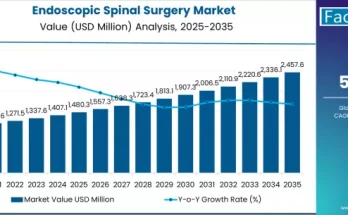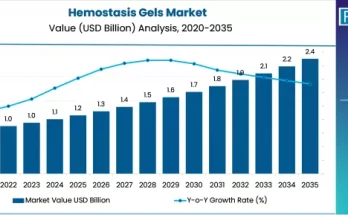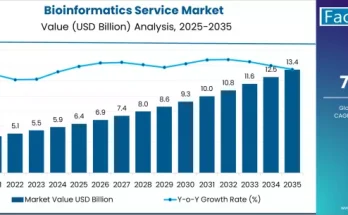Global demand for alpha emitters is expected to balloon at a CAGR of 21% and reach a market size of US$ 6.7 billion by the end of 2032, says Fact.MR, a market research and competitive intelligence provider.
A substance that emits alpha particles is known as an alpha emitter. These compounds are produced by radioactive sources. They achieve the right bio-distribution and related dose distribution to deliver effective therapy without bringing about intolerable short- or long-term side effects. When used in medical operations, alpha particles are more corrosive to tumour cells than beta particles due to their very high cell-killing rates. They don’t harm the nearby healthy tissues as much. Some radionuclides utilised in treatment include radium, lead, and bismuth.
Alpha particles have drawn considerable interest from the medical research community due to their limited range and high linear energy transfer (LET), especially as a potential cancer treatment option. Ovarian cancer, lymphoma, melanoma, and pancreatic cancer are some of the cancers that are treatable with alpha emitters.
The market is primarily supported by large and sophisticated research and development initiatives being made in the cancer treatment field. This is because people are becoming more aware of the fact that certain alpha emitters can destroy cancerous cells. Accordingly, the market is being stimulated by the general population’s increasing tendency for various cancers.
Rapid urbanization, ongoing healthcare infrastructure development, and rising disposable income levels, among others, are some of the key factors influencing market growth.
- The WHO report 2022 states that cancer is the biggest cause of mortality globally, accounting for approximately 10 million fatalities in 2020, or close to one in every six deaths.
- According to the same source, 400 000 youngsters are diagnosed with cancer each year.
- The eighth most common cancer in women and the 18th most prevalent cancer overall is ovarian cancer.
- The American Cancer Society predicts that 19,880 women will be newly diagnosed with ovarian cancer in the U.S. in 2022. Ovarian cancer will claim the lives of approximately 12,810 women.
Alpha emitters play an important role in killing cancerous cells using targeted therapy. Thus, the demand for alpha emitters is expected to rise at a significant rate over the coming years.
Key Takeaways from Market Study
- The global market for alpha emitters is currently valued at US$ 1 billion.
- Worldwide sales of alpha emitters are expected to reach US$ 6.7 billion by 2032.
- China’s alpha emitters market is expected to expand at a CAGR of 20% from 2022 to 2032.
- Demand for alpha emitters for ovarian cancer medical applications is predicted to rise at a CAGR of 22% from 2022 to 2032.
“Short-range, high-efficiency α-particle radioimmunotherapy is an innovative and promising therapeutic strategy; targeted therapy benefits from the very high cell-killing capacity of α-particles”, says a Fact.MR analyst.


